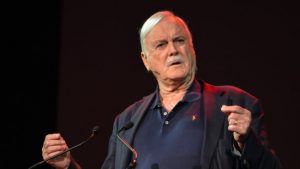I saw something recently that reminded me of an incident on my radio show about 20 years ago.
At the time, one of the St. Louis Rams had told the head coach that he’d have to miss a mid-week practice because his wife was going to have their first baby. The coach berated the player, telling him he had his priorities all wrong, but the player stood his ground — and was docked a day’s pay for going to the hospital instead of the practice facility.
On the air, I took the player’s side, because I had (and have) vivid memories of the day my only child was born, an event I can’t imagine not being present for. Most of my callers agreed with me, but not all of them — including Jackie Smith, a Hall Of Fame NFL star who had been with the St. Louis Cardinals football franchise in the 1960s and 1970s. He was still a well-known personality in town, doing commercials and personal appearances. I think at one point in the 1990s, Smith was the official greeter for one of the local casinos.
I didn’t know Smith was going to call, but when I put him on the air, I could hear that he was angry. He told me who he was, and although I greeted him warmly, he leaned into me right away, asking if I’d ever played professional football. When I said I hadn’t, he went off on a rant about how I had no right to criticize how any football team operates or how the coaches treat their players or anything else about the game. I told him that his policy was going to come as quite a surprise to fans of the Rams or other NFL franchises or, for that matter, any other sports team. He replied that if you never played the game, you should keep your mouth shut. I said that was going to put a lot of sports radio hosts out of business.
He still hadn’t calmed down, but I thought I’d poke the bear just a bit more by asking Jackie when he had ever hosted a talk radio show. He admitted that he’d never had a show of his own. So, using his rule, I asked what gave him, with no experience in the field, the right to criticize me, a veteran broadcaster? He shouted, “That’s not the same!” Then he slammed the phone down (this was an era when you could still do that).
Both my producer and board operator were laughing and applauding as I announced, “Now, here’s something Jackie Smith has never said: I’ll be right back after these commercials, and I’ll only take calls in the next segment from people who have never played in the NFL.” The phone lines remained full for the rest of the hour, and we all had a lot of fun.
What reminded me of that story was seeing Monty Python legend John Cleese similarly lashing out at critics on Twitter last week:
If critics could write or direct or act, presumably they would be doing that, and earning more than the pittance that critics are paid. So it’s odd that, given their inabilities, they are then put in judgement over people who CAN write, direct, and act.
Let’s take this apart piece by piece.
If a critic loves many of the things Cleese did (e.g. “Holy Grail,” “A Fish Called Wanda,” his work as Q in a couple of Bond movies), are they allowed to say so? Or does the fact they’ve never worked in front of or behind the camera mean they can’t praise his good work? And if they can do that, should they only keep quiet when Cleese is involved in garbage (e.g. “Spud 3,” “The Pink Panther 2”)?
I have never been president, but I have observed enough good ones and bad ones to know that Trump is the worst of my lifetime. Am I allowed to say that? By the way, Cleese has also never been president, but that hasn’t stopped him from commenting about the idiocy of the Liar-In-Chief.
Next, are we really to judge the quality of someone’s work based on how much money they have earned? I will bet that many critics have had a much more stable employment career than most people who act, write, and direct (fewer than 10% of people in the arts work regularly). Not only that, I will bet that Adam Sandler has made more money than Albert Brooks, but no one would rank him higher in the comedy pantheon.
And finally, if we invoke Cleese’s logic, it would be okay to judge people who can’t write, direct, and act. But you can’t make a career writing about Rob Schneider.

